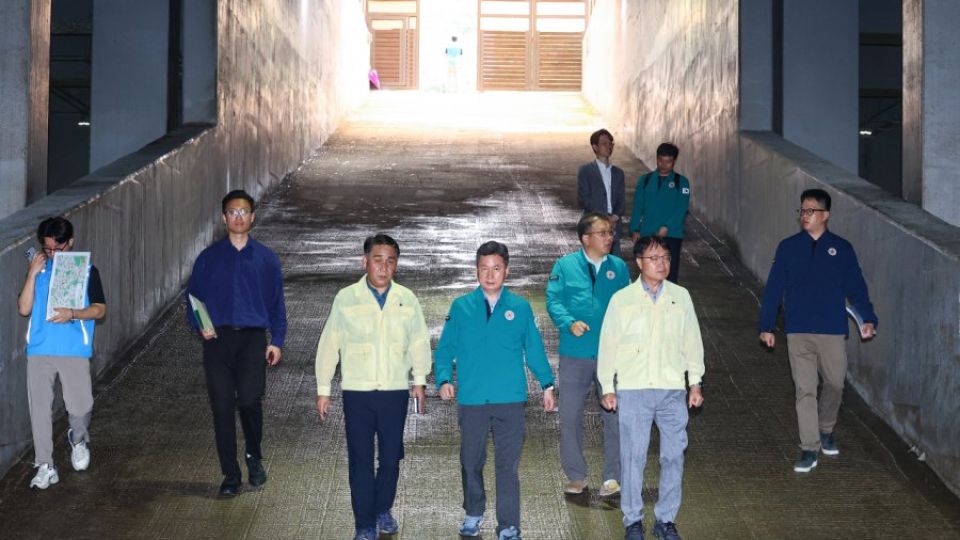June 27, 2023
SEOUL – As monsoon season began with heavy rain early Monday morning, the government kicked off a 24-hour emergency duty system to prepare against the seasonal downpour.
The Ministry of the Interior and Safety launched the Central Disaster and Safety Countermeasures Headquarters at 3 a.m. Monday and raised the warning level from “attention” to “caution.” The “caution” stage is the second of the three warning stages the emergency headquarters can issue.
Upon his return from an overseas trip, President Yoon Suk Yeol on Saturday reportedly ordered thorough preparation for rain to be led by Vice Interior Minister Han Chang-sub, saying, “Quick warnings and evacuation are crucial to prevent loss of life.”
Han visited a rainwater pump station and rainwater retention tank in Gwanak-gu, Seoul, Monday, to examine the status of the facilities and the flood response process.
“Local governments should thoroughly check related facilities to ensure that every flood response process can operate normally under any circumstances,” said Han.
The Environment Ministry held a meeting at the Government Complex Sejong for flood response with related ministries Monday afternoon. The meeting focused on preparing measures to prevent casualties caused by heavy rain.
According to the Korea Meteorological Administration, most parts of the country are expected to see rain with gusts of wind, thunder and lightning by Tuesday.
The expected precipitation from Monday to Tuesday is 40 to 100 millimeters in Seoul and the metropolitan area, 30 to 100 mm in Busan, Daegu, North and South Gyeongsang provinces and Gangwon Province, and 50 to 150 mm on Jeju Island. Due to the influence of a stationary front, rain will drench the country again in the latter half of the week, especially in the southern areas and Jeju Island.
Access to 66 trails in two national parks was closed as of 2 p.m. on Monday. Some 39 ships on 28 routes halted operation due to a windstorm warning. The Seoul Metropolitan Government had restricted access to trails near four downtown streams — Cheonggyecheon, Seongbukcheon, Jeongneungcheon and Uicheon — but lifted the restriction as the rain subsided.
Both central and local governments have been looking for ways to better manage street drainage. Rainwater drains blocked by trash or fallen leaves were among the main causes of flooding in central Seoul during torrential rains in August last year.
The Seoul Metropolitan Government cleaned 67,282 drains before the recent rain. The Ministry of Environment has announced a “reporting period for clogged street inlets,” encouraging people to pay attention to drainage facilities. The reporting period is from Monday to Oct. 15, and anyone who finds clogged or blocked street drains can report the location via the Safety e-Report website operated by the Interior Ministry.


